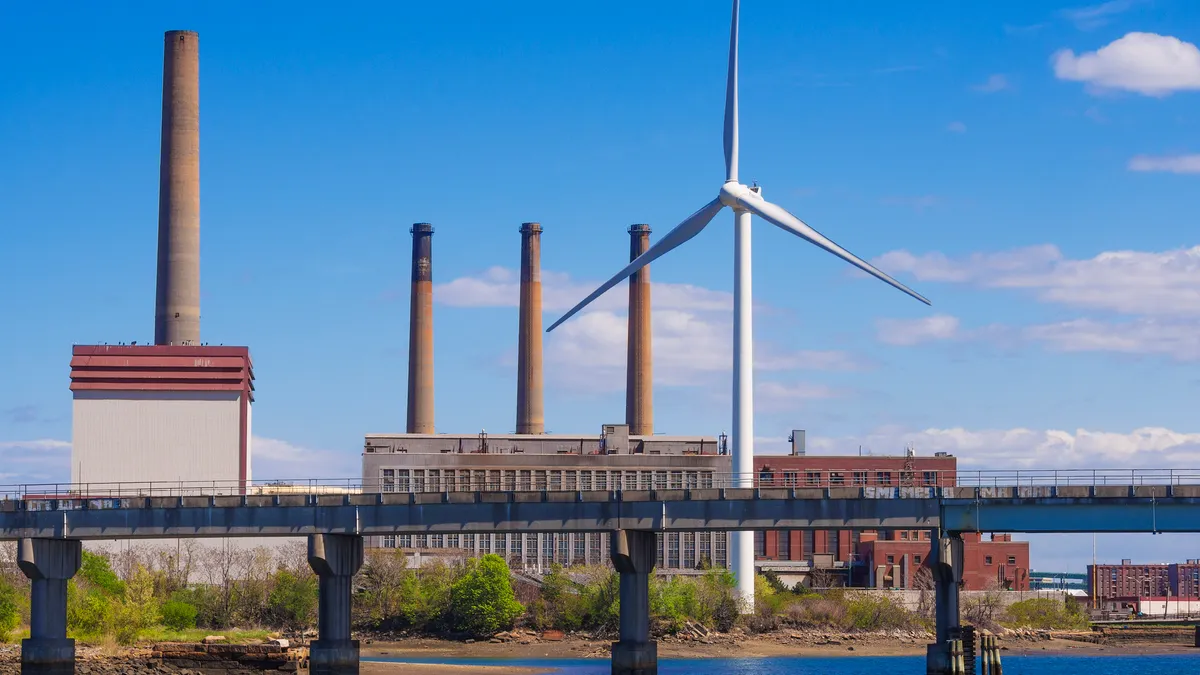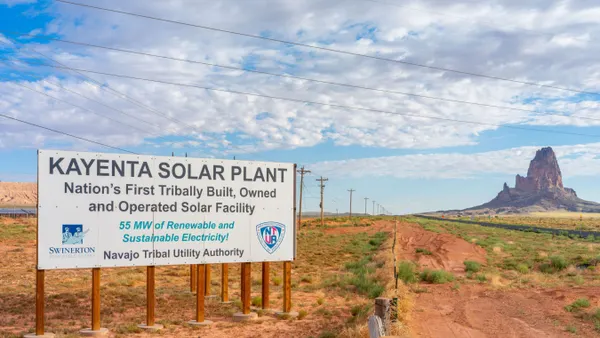Massachusetts Gov. Charlie Baker, R, signed a major climate and clean energy bill on Thursday, despite previously expressing concerns over certain limits on fossil fuels, a lack of funding, and other issues.
In particular, Baker had misgivings about a provision in House Bill 5060 that allows 10 communities to ban or restrict the use of fossil fuels in new construction projects.
“That part of the bill gives me agita,” the governor said on Tuesday, according to CommonWealth Magazine.
But Baker went ahead and signed the bill while detailing his many reservations in a letter to the Massachusetts Senate and House of Representatives.
“To ensure Massachusetts retains its standing as a national leader in securing renewable energy ... I am signing this bill,” Baker wrote.
“However, because this legislation rejected virtually every meaningful amendment I put forth, this bill does not have the same shared sense of purpose that all previous climate legislation embodied, which is unfortunate,” the letter continued.
The decision to not exempt multi-family housing from the community-level ban on natural gas and other fossil fuels will ensure that low- and moderate-income families continue to be priced out of these towns, Baker wrote. “Multi-family buildings that use only electric alternatives are currently cost prohibitive,” Baker’s letter stated.
Baker further detailed concerns about various other parts of the bill, including the formation of a grid modernization advisory council and a clean energy transmission working group.
Environmental groups had concerns, too, but generally praised the bill.
“This new law takes some great steps on biomass and offshore wind, but it’s sorely lacking when it comes to environmental justice,” Staci Rubin, vice president of environmental justice at Conservation Law Foundation, said in a statement.
“[U]nhealthy air pollution and dangerous energy infrastructure are concentrated in environmental justice populations, and the bill does not go far enough to protect these areas from further harm or require commuter rail electrification. The bill also does not go far enough in removing fossil fuels from our homes, buildings, and public transit at the pace necessary to address the climate crisis,” CLF said.
“After a month-long heat wave, we are stepping up our decarbonization game. This bill starts to implement our plan to get off fossil fuels while growing a local clean energy economy that creates good-paying jobs for the people of Massachusetts,” Jess Nahigian, state political director of Sierra Club Massachusetts, said.
Among other things, the bill:
- Requires all new vehicle sales in the state be zero emission beginning in 2035;
- Establishes a Charging Infrastructure Deployment Fund and forms a new coordinating council to develop a plan for the equitable deployment of EV chargers;
- Declares that new industrial-scale biomass plants cannot be considered renewable as part of the state’s renewable portfolio standard program;
- Requires new grid modernization projects to minimize price impacts on ratepayers; and
- Directs the Massachusetts Department of Energy Resources to deliver to the legislature by 2023 a study of “mid-duration” and “long-duration” energy storage systems, including pumped storage.
The bill also includes major provisions on offshore wind.
“The sweeping energy bill signed into law today showcases why Massachusetts continues to be a national leader in offshore wind development,” John Begala, vice president of federal and state policy at the Business Network for Offshore Wind, said in a statement.
The bill reforms the state’s offshore wind procurement process and codifies its commitment to procure 5,600 MW by 2030. Massachusetts policymakers also “created new tools to support industry development through supply chain advancement, infrastructure financing, and workforce development in the form of new tax incentives and grants” the Business Network for Offshore Wind noted.
The legislature did remove a price cap on what developers of offshore wind projects can charge for the power they produce, a provision that had led Baker to veto a previous version of the bill.















